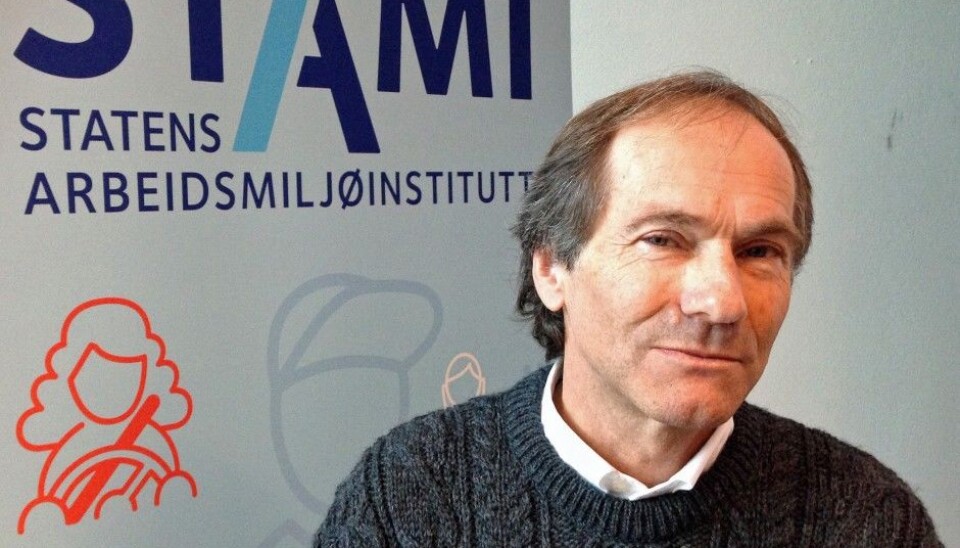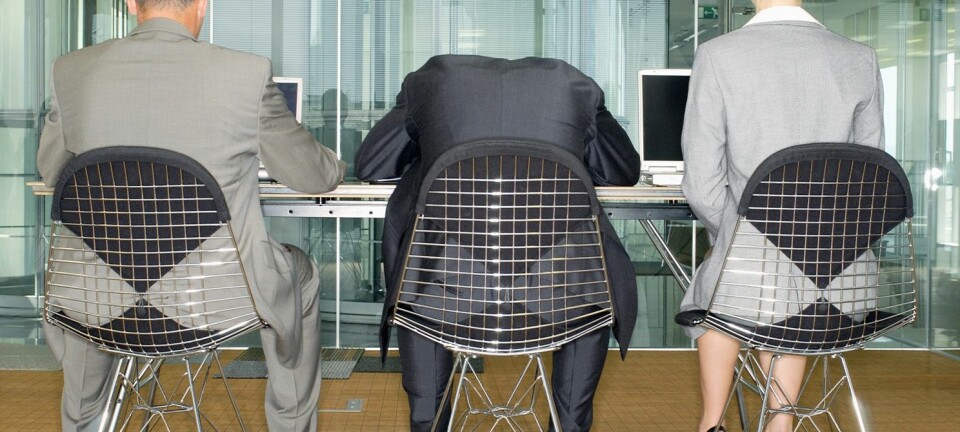
Workforce “survivors” experience problems after downsizing, too
Getting laid off can cause health problems in those who lose their jobs— but also in those who retain them.
Restructuring and downsizing can be bad for the health of workers who remain, according to a new Norwegian research project.
“Workers may experience negative physical consequences if their bodies are constantly in adaption mode,” said Stein Knardahl, deputy director of the Norwegian National Institute of Occupational Health (STAMI).
Knardahl made his remarks at a seminar on restructuring and downsizing in the Norwegian workplace held in early November.
“Restructuring can cause your body to react — you might get heart palpitations or headaches,” he said.
Knardahl believes workplace "survivors" after a downsizing are a mostly forgotten group.
He and his colleagues are working on a major survey of health problems in a variety of businesses as part of a new project called "The New Workplace". They will follow several thousand employees over the course of at least two years, with the expectation that at least some of these employees will experience downsizing.
Employees across the workplace spectrum, from municipalities to insurance companies, are being asked to respond to questions about changes in the workplace and how they feel. Researchers have not studied the oil industry and other sectors that are being hard hit right now by downsizing. The project is still ongoing.
The researchers’ preliminary findings show that retaining your job through a downsizing process may increase your risk of developing pain and minor ailments. These findings are supported by studies from other countries.
Robots are taking over
Knardahl thinks the situation in Norway may get worse, as technological developments make many of us redundant.
Jobs have already disappeared at banks, since customers can use online banking. But that is only a small sample of what is to come, Knardahl said. Robots are able to take on more and more jobs formerly done by humans, and it is becoming harder and harder to find new jobs for those who are displaced.
“There are fewer jobs to compete for. We haven’t really faced this yet,” he said.
When it is difficult for workers to find a new job, downsizing can cause health problems, he says. There’s good evidence for this in the experiences of other countries.
Finland, for example, experienced hard financial times in the early 1990s. Employees from companies and industries that had to make large job cuts were found to be twice as likely to die of cardiovascular disease as employees who did not work in places where there were job cuts, one study reported.
Many of the studies that have shown serious health problems were conducted during economic downturns, so researchers do not know whether the consequences would have been as bad if the economy had been on an upturn.
Lack control over their workday
One Swedish study found that downsizing increased the use of antidepressants among workers who were previously healthy.
But these problems may not just be limited to downsizing. Another Swedish study suggested that large increases in the workforce over time can increase absenteeism.
The amount of sick leave is affected by how much control employees feel they have over their own workday, according to a summary of research findings by Knardahl and his colleagues released earlier this year.
Knardahl believes that negative health effects could result from everything from increased work pressure on employees who have to deal with the same number of tasks with fewer employees, to feelings of guilt in workers who remain because they “survived” while their colleagues were fired.
But the way the process is conducted is also important in determining how employees react. Bad information and rumours create uncertainty and mistrust. If employees feel that the process has been fair, they have fewer depressive symptoms, according to one study of the effects of the European recession on workers in France, Hungary, Sweden and the UK.
Afraid to take sick leave
There are still major gaps in what we know about the relationship between downsizing, health and the workplace, says Knardahl.
Some studies have found a clear correlation between absenteeism and downsizing, while others have found no increase in sick leave among those who retained their jobs during a downsizing. Some researchers have argued that uncertainty in the workplace makes employees afraid to stay home from work when they are sick. They are afraid of losing their jobs.
However, the differences between these studies might be due to the fact that they were conducted in different labour markets, says Knardahl.
This general lack of information is partly because companies themselves don’t look into the occupational health and safety effects of downsizing, he said.
“Health is almost seen as a private matter, even though it may be very important for the motivation of the staff and how productive they are,” Knardahl said.
“Companies rarely do their own investigations of these issues. But it ought to be required.”
--------------------------------------
Read the Norwegian version of this article at forskning.no
































